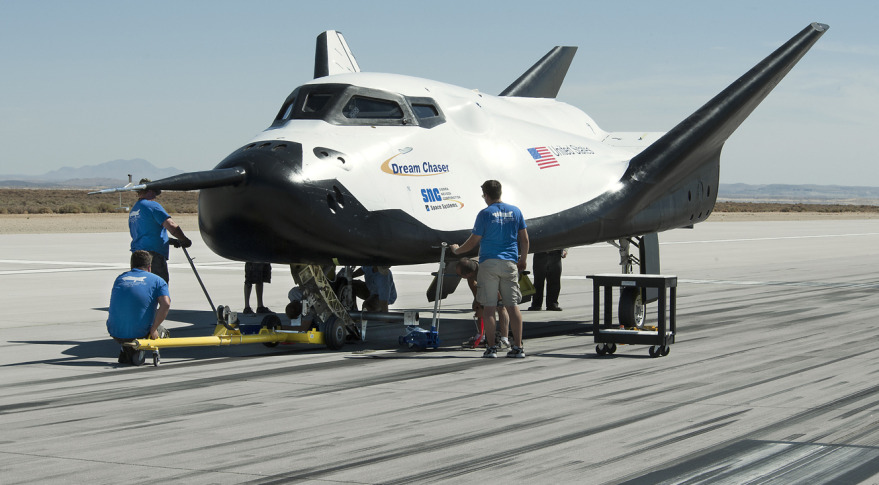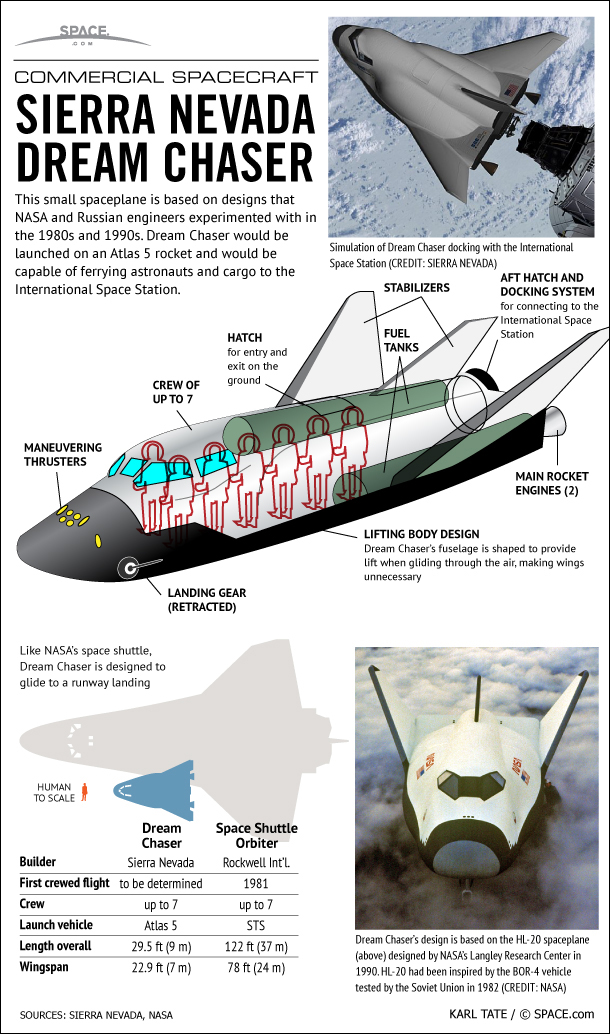GAO Denies Sierra Nevada Protest of Commercial Crew Contract

SEATTLE — The U.S. Government Accountability Office rejected Jan. 5 a protest filed by Sierra Nevada Corp. of commercial crew development contracts NASA awarded in September to two other companies.
In a statement, Ralph O. White, managing associate general counsel for procurement law at GAO, said that the agency had rejected claims by Sierra Nevada regarding the Sept. 16 award of Commercial Crew Transportation Capability (CCtCap) contracts to Boeing and Space Exploration Technologies Corp.
Sierra Nevada filed its protest Sept. 26, asserting that its proposal had technical merits similar to the winning companies but at a lower cost than at least one of them. In a statement issued the same day as the protest, the company claimed there were "serious questions and inconsistencies in the source selection process." The deadline for the GAO to rule on the protest was Jan. 5. [Sierra Nevada's Dream Chaser in Photos]

The GAO, in its statement, said Sierra Nevada argued that NASA had improperly deviated from the CCtCap selection criteria by "significantly elevating" the goal of having a crew system certified to carry astronauts by the end of 2017, and not communicating that goal to the bidding companies.
"GAO disagreed with Sierra Nevada's arguments about NASA's evaluation, and found no undue emphasis on NASA's consideration of each offeror's proposed schedule, and likelihood to achieve crew transportation system certification not later than 2017," White said in the statement. He added that the GAO found that NASA's request for proposals for CCtCap made clear the 2017 goal of certification.
The GAO said Sierra Nevada's protest also made several other claims, including that NASA made an "inadequate review" of SpaceX's price and financial resources, a "flawed and disparate evaluation" of each proposal's mission suitability factor, a major element of the selection process, and an improper review of the past performance element of the proposals.
“Based on our review of the issues, we concluded that these arguments were not supported by the evaluation record or by the terms of the solicitation,” Smith said in the GAO statement.
Get the Space.com Newsletter
Breaking space news, the latest updates on rocket launches, skywatching events and more!
Sierra Nevada, in a statement issued Jan. 5, accepted the decision by the GAO and said it would continue to find alternative avenues to support development of the Dream Chaser vehicle it proposed to NASA.
"While the outcome was not what [Sierra Nevada Corp.] expected, we maintain our belief that the Dream Chaser spacecraft is technically very capable, reliable and was qualified to win based on NASA’s high ratings of the space system," the company said in its statement.
Sierra Nevada spokesperson Krystal Scordo said that the company would continue working on the final milestone of an earlier NASA commercial crew award, involving a second glide flight of a Dream Chaser engineering test vehicle. That test is planned for 2015, but she said the company has not set a more specific date.
NASA welcomed the denial of the protest. "The GAO's decision allows the agency to move forward and continue working with Boeing and SpaceX" on the CCtCap contracts, the agency said in a Jan. 5 statement.
The GAO, while announcing the rejection of the protest, said it would not yet release the formal decision because it contained sensitive information. A redacted version of the decision statement should be publicly available within a few weeks, it said. NASA also said it would not release further details until the GAO decision is published.
The GAO statement did, though, contain new information about the CCtCap bids. It said that Sierra Nevada offered a price of $2.55 billion to develop its Dream Chaser vehicle. That made the company more expensive than SpaceX, which bid $1.75 billion, but less expensive than Boeing’s bid of $3.01 billion.
When NASA announced the CCtCap awards in September, it valued Boeing's contract at $4.2 billion and SpaceX’s contract at $2.6 billion. Those contract values include six flights for each company, although the companies are guaranteed only two each.
This story was provided by SpaceNews, dedicated to covering all aspects of the space industry.
Join our Space Forums to keep talking space on the latest missions, night sky and more! And if you have a news tip, correction or comment, let us know at: community@space.com.

Jeff Foust is a Senior Staff Writer at SpaceNews, a space industry news magazine and website, where he writes about space policy, commercial spaceflight and other aerospace industry topics. Jeff has a Ph.D. in planetary sciences from the Massachusetts Institute of Technology and earned a bachelor's degree in geophysics and planetary science from the California Institute of Technology. You can see Jeff's latest projects by following him on Twitter.










